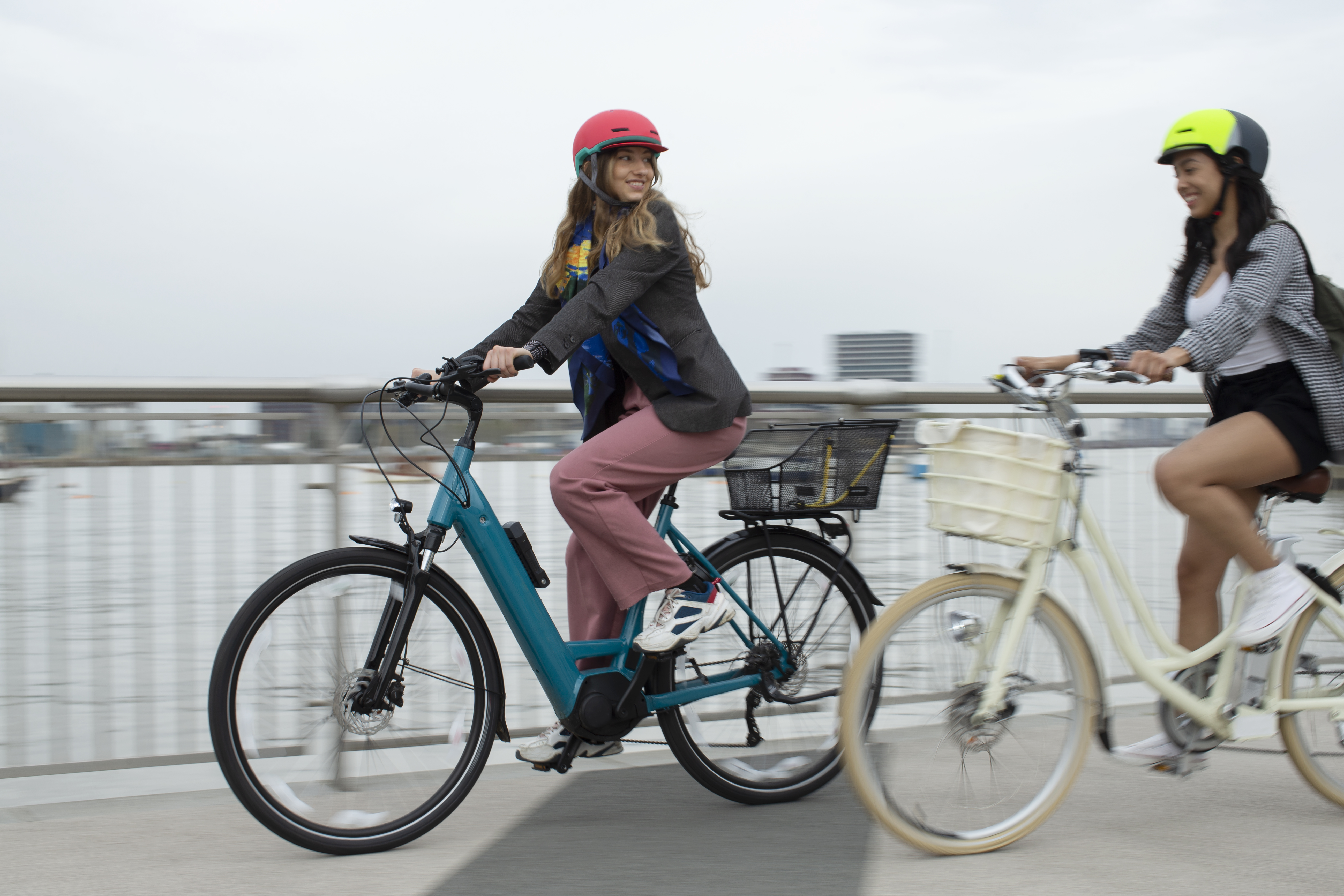'A huge setback for active and sustainable transport' - Most e-bikes to be banned on London public transport
Only folding e-bikes allowed on Transport for London services from 31 March


The decision to ban most e-bikes on public transport in London, announced on Wednesday, has been described as a "huge setback for active and sustainable transport in London".
In a statement, Transport for London (TfL) declared that all non-folded e-bikes will not be permitted to travel on most TfL services, including on the Tube, Overground, Elizabeth line and DLR.
This is due to a small number of incidents where non-foldable e-bikes caught fire on London's transport system, with bikes that have been adapted using conversion kits posing a greater threat, according to TfL. The action had been called for by the train drivers' union ASLEF.
Lilli Matson, TfL's chief safety, health and environment officer, said that the ban would play a "vital role in keeping our transport system safe for everyone".
The Mayor of London, Sadiq Khan, said: "The safety of Londoners is my top priority and, while most e-bikes are safe, there have been a small number of incidents where non-foldable e-bikes have caught fire on the transport system, which have caused me great concern.
"This is why, following a comprehensive review of the safety of e-bikes, TfL is banning all non-folding e-bikes on tube and rail services. I have asked TfL to continue to work with Government and partners to improve e-bike safety as we build a safer London for everyone."
Charlie Pugsley, London Fire Brigade's deputy commissioner for prevention, protection and policy, said: "While we recognise the sustainable benefits e-bikes, and micromobility generally, bring to our city, the reality is that across London we have been seeing an e-bike or e-scooter fire every other day, on average, and we have particular concern about the risk posed by conversion kits or modified e-bikes.
Get The Leadout Newsletter
The latest race content, interviews, features, reviews and expert buying guides, direct to your inbox!
"When these fires occur, they can be sudden, incredibly ferocious and produce smoke that is extremely toxic."
However, James Metcalfe, co-founder of VOLT Bikes, criticised the decision.
"While we're pleased this isn't an outright ban of all e-bikes, the blanket ban of all non-folded e-bikes in the TfL network is a huge setback for active and sustainable transport in London," he said. "Many ordinary commuters who cycle to and from their tube/train stations will now be unable to make their usual journeys. Instead of restricting access for most users who own safe, legal e-bikes, the emphasis should be placed on education and enforcement, rather than a one-size-fits-all approach.
"The heart of the issue isn't that folding e-bikes are safer, its that manufacturers, like us at VOLT, uphold strict quality standards and only use cells from trusted brands like Panasonic, but the same can’t always be said for the e-bikes, batteries, and conversion kits being bought online. At VOLT we use the same batteries for both our folding and non-folding e-bikes. The public needs to be made more aware of the potential dangers associated with buying from non-reputable brands, and regulatory enforcement needs to become simpler. A national database for legal e-bikes could help tackle this problem, and ensure that only safe, high-quality e-bikes are being ridden.
"If TfL and the government are serious about promoting sustainable transport, then we need policies that encourage cycling by connecting it with public transport, rather than deterring people from it."
Lesley Rudd, chief executive of Electrical Safety First, said: "Without regulation to prevent substandard versions of e-bikes, their batteries, chargers and conversion kits coming onto the market, the industry could face future blanket restrictions. Whilst reputable manufacturers produce high quality products that meet safety standards, more needs to be done to address the risk posed by substandard versions of these devices that are often linked to serious incidents. It’s vital the Product Regulation and Metrology Bill tackles this issue head on and mandates third-party certification for these products, to ensure only safe batteries and e-bikes can be sold on the UK market.
"Converted e-bikes can also pose a risk if they are made up of substandard or incompatible components, and converted incorrectly, which is why we are also calling for new safety standards to be introduced for these kits, to better tackle the issue. Our proposals will better protect consumers, protect the reputable sector who already make safe devices, and help to weed out bad operators producing and selling dangerous substandard batteries.”"

Thank you for reading 20 articles this month* Join now for unlimited access
Enjoy your first month for just £1 / $1 / €1
*Read 5 free articles per month without a subscription

Join now for unlimited access
Try first month for just £1 / $1 / €1

Adam is Cycling Weekly’s news editor – his greatest love is road racing but as long as he is cycling, he's happy. Before joining CW in 2021 he spent two years writing for Procycling. He's usually out and about on the roads of Bristol and its surrounds.
Before cycling took over his professional life, he covered ecclesiastical matters at the world’s largest Anglican newspaper and politics at Business Insider. Don't ask how that is related to riding bikes.
You must confirm your public display name before commenting
Please logout and then login again, you will then be prompted to enter your display name.
-
 Save £42 on the same tyres that Mathieu Van de Poel won Paris-Roubaix on, this Easter weekend
Save £42 on the same tyres that Mathieu Van de Poel won Paris-Roubaix on, this Easter weekendDeals Its rare that Pirelli P-Zero Race TLR RS can be found on sale, and certainly not with a whopping 25% discount, grab a pair this weekend before they go...
By Matt Ischt-Barnard
-
 "Like a second skin” - the WYN Republic CdA triathlon suit reviewed
"Like a second skin” - the WYN Republic CdA triathlon suit reviewed$700 is a substantial investment in a Tri Suit, and it is, but you’ll definitely feel fast in it
By Kristin Jenny